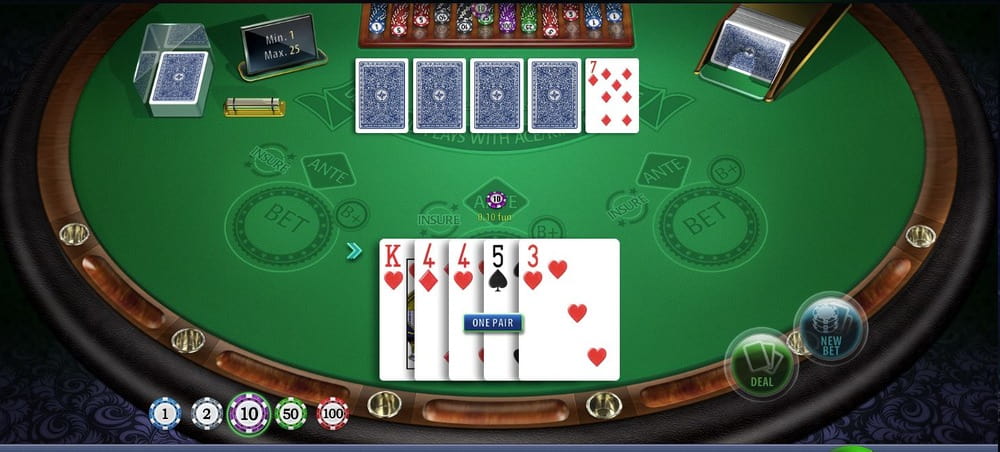
Poker is a competitive card game that combines elements of chance, strategy, and psychology. To succeed, players must understand the basic structure of the game, including how hands are ranked, how betting rounds unfold, and how actions like folding or raising affect each stage of play. This guide outlines the essential rules and mechanics that define poker, focusing on gameplay structure, hand formation, player positions, and the flow of each hand from start to finish.
Objective and Hand Formation
The goal in poker is to form the highest possible five-card hand using a combination of personal and community cards. Victory may be achieved by holding the best hand at showdown or by causing all other players to fold before reaching that stage.
The game uses a 52-card French deck with four suits (spades, hearts, diamonds, and clubs) and thirteen ranks (2 through ace). Most variants, including Texas Hold’em and Omaha, rely on a mix of private and shared cards.
Table Setup and Player Roles
Poker can be played with two or more participants. Smaller games—often called “heads-up”—involve two players, while standard tables in casinos usually seat between six and ten. The dealer position rotates clockwise after each hand, along with two mandatory bets known as the small and big blinds.
Key Positions at the Table:
| Role | Description |
|---|---|
| Dealer Button | Indicates the nominal dealer; position rotates clockwise |
| Small Blind | Posts a forced bet before the hand begins |
| Big Blind | Posts a larger forced bet before any cards are dealt |
The button and blinds move one seat clockwise after each hand, keeping the order of play fair and dynamic.
Betting Rounds
A full hand of poker moves through four betting phases, followed by a possible showdown. Understanding each stage helps players build their stack and avoid mistakes:
- Preflop: The round begins as players are dealt their private hole cards. Decisions to bet, raise, call, or fold hinge on the strength of these starting hands. With no community cards revealed, reading opponents is limited to pre-betting behaviors.
- The Flop: After the first betting round, three community cards are dealt face-up on the table. Players analyze the revealed cards and consider the potential combinations for their hands, setting the stage for the second betting round.
- The Turn: A fourth community card is added to the board, intensifying the action. With updated odds and more information available, players adjust their strategies for another full betting round.
- The River: The fifth and final community card is dealt, marking the last opportunity for strategic betting. At this climactic stage, players make their final moves before the ultimate reveal.
- Showdown: After the last round of betting, remaining players reveal their hole cards. The best 5-card hand, made from the combination of personal and community cards, claims the pot. This is the moment when skill, strategy, and luck come together to decide the winner.
Key Player Actions
Making moves is what poker is all about. Mastering a few key actions when it’s your turn is how winners are made.
Your available player actions during betting rounds are:
- Check: Pass action to next player
- Bet: Put chips in voluntarily
- Raise: Increase prior bet
- Fold: Bow out of hand if you think you’ll lose
Knowing when to apply each tactic boils down to comparing the two primary options – checking and betting:
| Action | Checking | Betting |
| What it means | Decline to bet, pass to next player | Put more chips in pot |
| Why choose | You want to see if opponents will bet first to get more info | Strong hand, bluffing, think you’ll win |
| Risk level | Less risky | More risky |
Poker Hand Rankings
Knowing hand values is essential for judging when to stay in a round or fold. Poker hands follow a strict hierarchy:
| Hand | Description | Example |
| Royal Flush | Ace-high straight flush | 10♦J♦Q♦K♦A♦ |
| Straight Flush | 5 consecutive suited cards | 7♠8♠9♠10♠J♠ |
| Four of a Kind | 4 cards of same rank plus 1 other | Q♠Q♦Q♥Q♣9♥ |
| Full House | 3 of a kind plus a pair | A♦A♥A♠8♦8♥ |
| Flush | 5 cards same suit | 5♣7♣10♣K♣A♣ |
| Straight | 5 consecutive cards, mixed suits | 6♥7♠8♦9♣10♠ |
| Three of a Kind | 3 cards same rank plus 2 others | 4♦4♠4♥J♦2♠ |
| Two Pair | 2 sets of pairs plus 1 kicker | K♠K♥7♦7♣A♠ |
| One Pair | 1 pair plus 3 kickers | 3♥3♠Q♦10♣2♦ |
| High Card | Highest card if no pairs | A♦K♥Q♠J♣9♠ |
Understanding Odds and Outs
In poker, odds refer to the likelihood of improving a hand. An “out” is any remaining card in the deck that can enhance a player’s current hand.
Example:
- After the flop, a player has four cards to a flush.
- There are 9 remaining cards of that suit in the deck (13 of each suit minus 4).
- The chance of hitting a flush on the next two cards (Turn and River) is approximately 35–38%.
Knowing the number of outs helps players estimate the probability of forming a winning hand and deciding how much to commit to the pot.
How Payouts Work
Payouts depend on three factors:
- Your total wager
- The amount opponents have called
- The total value of the pot
Larger wagers increase potential rewards. Raising or going all-in can result in much higher returns—if the hand wins. However, it also increases risk. Effective risk management and awareness of pot size help determine when larger bets are worth the cost.
FAQs
What is the most popular poker game?
No-limit Texas Hold’em reigns supreme in both casinos and home games.
Is poker legal?
Poker has a rich history and is now universally legal in both casinos and home games. Only unregulated underground poker establishments are occasionally subject to legal crackdowns, but licensed poker rooms operate unhindered.
What is the minimum age to play?
18 is the legal age to play poker at public casinos and online poker sites that have a special licence.
What tips do you have for beating experienced poker players?
Against passionate poker fans, learn the basics first. Value bet aggressively when you have strong hands – they won’t lay down hands easily when smitten with macho swagger. Mix in some creative bluffs to keep them guessing.
